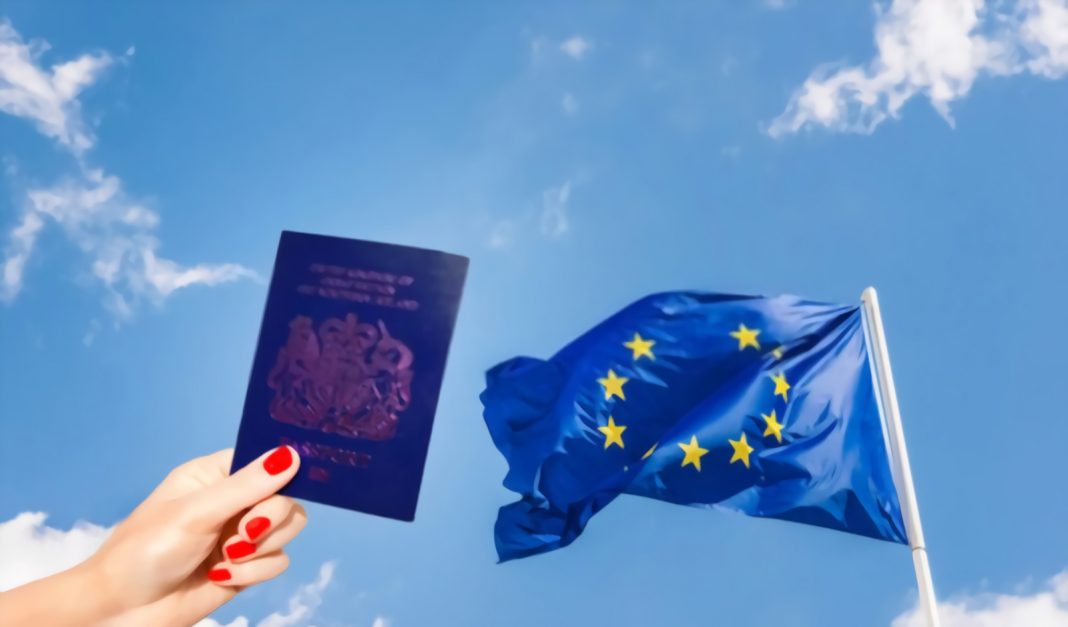What is the reason for the uncertainty of the residence status of European citizens living in the UK after the Brexit?
What is the reason for the slow process of processing the residence of European citizens in the UK?
What are the implications of the new UK immigration system?
What do the terms of the Brexit agreement say about European citizens staying in the UK?
Nearly a year after the UK left the EU, tens of thousands of European citizens are still waiting to receive residency to enjoy their citizenship rights. They expect the UK government to cooperate more in this regard and determine their residency status as soon as possible. But the UK government is negligent and slow.
The negligence of the UK government in determining the residence status of European citizens
Luke Piper, head of policy at the3million, a campaign group for EU citizens in the UK, talks about the uncertainty of the lives of these European citizens living in the UK. According to the break-up of this civil rights organization, there are currently several hundred thousand applications for the so-called settlement program from European citizens that have not yet been prepared. The program guarantees the right to housing, work, and health care for EU citizens who lived in the country before 31 December 2020. In total, more than 6.3 million European citizens in the UK have made such a request.
The process of slowing down the residence status of European citizens
The human rights organization has expressed concern that if these processes continue at the current speed, it will take until 2023 to process the accumulated cases. When asked by the UK Home Office about this, he replied that there is no deadline for processing these requests. According to the3Million, the processing of these requests has been slow over the past few months. The organization called for increased capacity in the UK Home Office to respond more quickly to such requests from European citizens to receive counselling and assistance services while waiting to obtain a residence permit.
Abolition of freedom of movement between the UK and the EU
The UK government has threatened to expel European citizens who do not have a residence permit after being elected and have not left the country voluntarily. British Immigration Minister Kevin Foster has said that it is illegal for anyone to stay in the UK in this situation. “We expect people to leave the country voluntarily, and if that does not happen, immigration agencies will try to deport them,” he added. One of the key promises made by British Prime Minister Boris Johnson was to end freedom of movement with the European Union.
Violation of the rights of European citizens by the British government
The UK government is also currently facing a complaint from a British watchdog for the rights of European citizens residing in the country. According to the Independent Monitoring Authority for the Citizens’ Rights Agreements (IMA), around 2.5 million EU citizens in the UK are at risk of automatically losing their guaranteed rights under Brexit.
The Brexit provides that a person who has been in the UK for less than five years can initially apply for temporary residence, which can be converted to permanent residence after five years if requested. If this date expires and the person does not use it, they will be automatically deprived of their employment, living, and government protections under current regulations. The bargaining agreement guarantees the same rights to European citizens who were in the country before UK’s complete withdrawal from the EU.
New UK Immigration System
EU citizens living in the UK before the UK’s exit from the domestic market on 1 January 2021 could apply for new residency by the end of June 2021 to gain access to health services and the labour market. More than 6 million people did so, and 5.4 million applications have been approved so far.
Immigration Minister Kevin Foster also said that the public expects us to expel those who do not have the right to reside in the UK. He also rejected easing visa rules to supply the country with the specialized personnel it needs quickly. He claimed that the new immigration system was not why many jobs in the UK remained vacant. “We do not accept the points-based system is the key cause of labour shortages in the UK, not least because we can see similar scarcities across the EU, specifically in areas like hospitality and truck driving.
In any case, uncontrolled immigration from the EU is not a long-term solution whilst many UK citizens remain out of work or face the need to find new employment as furlough comes to an end,” he said.
Problems with the supply of goods in the UK after the Brexit
Economic associations in the UK have long called for special rules to address the severe shortage of skilled labour. Many European drivers have left the UK, and new drivers are not being replaced due to the complex and expensive visa process and the consequences of Brexit. Due to the shortage of truck drivers, supply problems have also arisen in the famous fast-food chains of McDonald, Nando and KFC. Many supermarket shelves are empty. The logistics industry has called for non-bureaucratic visas for European drivers and better subsidies for driving tests.
Working as a truck driver is no longer attractive to non-Brits once Brexit is finalized. The consequences of Brexit have become more complex than before, and borders with Europe have been closed, and there are high bureaucratic obstacles. Many of these workers have left the country because of Brexit and the Covid-19. After 47 years of membership, the UK officially left the EU this year. The government says it has reached an agreement on trade cooperation with the EU. But in practice, this departure has caused a great deal of trouble, especially for the British and European citizens.

